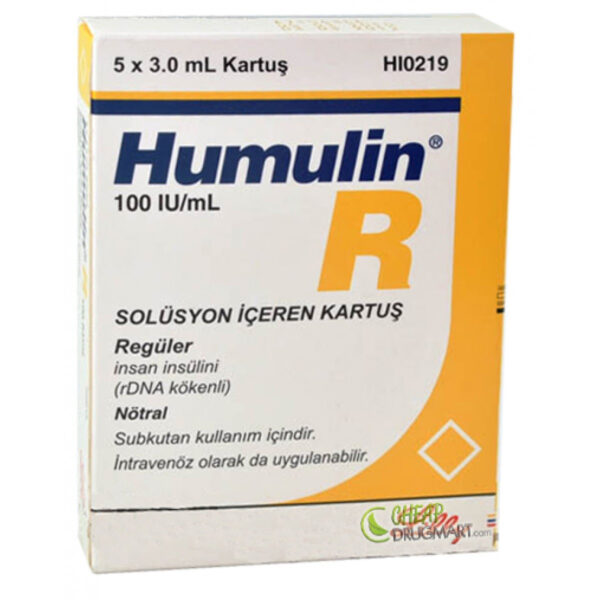
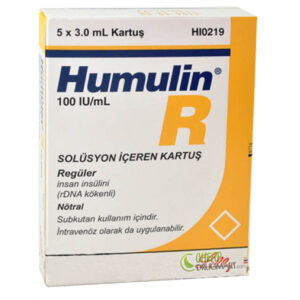
Buy HUMULIN R 100IU CART Online
$30.75
CHARACTERISTICS
ACTIVE SUBSTANCE INSULIN
FORM 5 CART X 3 ML
MANUFACTURER LILLY
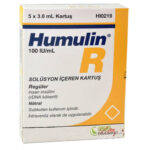
Buy HUMULIN R 100IU CART Online
$30.75
- Description
- Reviews (0)
Description
Indications: Humulin R is a short-acting insulin used to control high blood sugar levels in people with diabetes mellitus. It is indicated for the management of both type 1 diabetes (insulin-dependent diabetes) and type 2 diabetes (non-insulin-dependent diabetes).
Mechanism of Action: Insulin is a hormone produced by the pancreas that regulates blood sugar levels by facilitating the uptake of glucose into cells for energy production and storage. Humulin R contains recombinant human insulin, which is identical to the insulin produced by the human body. When injected subcutaneously, Humulin R rapidly lowers blood sugar levels by promoting glucose uptake in muscle and fat cells and inhibiting glucose production in the liver.
Administration: Humulin R is administered via subcutaneous injection using a syringe or insulin pen device. The injection is typically given into the abdomen, thigh, or upper arm. It should not be administered intravenously.
Dosage: The dosage of Humulin R varies depending on factors such as the individual’s blood sugar levels, dietary intake, physical activity, and insulin sensitivity. It is important to follow the dosage instructions provided by the healthcare provider or diabetes care team.
Efficacy: Humulin R has a rapid onset of action, with effects typically observed within 30 minutes after injection. It peaks in activity approximately 2 to 4 hours after injection and has a duration of action of about 5 to 8 hours. When used as part of a comprehensive diabetes management plan, Humulin R helps to maintain blood sugar levels within the target range and reduces the risk of hyperglycemia (high blood sugar) and its associated complications.
Common Side Effects:
- Hypoglycemia: Low blood sugar levels (hypoglycemia) are the most common side effect of insulin therapy and can occur if the insulin dose is too high relative to food intake, physical activity, or other factors.
- Injection Site Reactions: These may include pain, redness, or swelling at the injection site. Rotation of injection sites can help minimize discomfort.
- Weight Gain: Some individuals may experience weight gain as a side effect of insulin therapy, particularly if blood sugar levels are not adequately controlled.
Precautions:
- Hypoglycemia Risk: Patients using Humulin R should be educated about the signs and symptoms of hypoglycemia and instructed on how to manage low blood sugar episodes, including the use of glucose tablets or gel.
- Dose Adjustment: The dosage of Humulin R may need to be adjusted based on factors such as changes in diet, exercise, illness, or other medications. Patients should consult their healthcare provider for guidance on insulin dose adjustments.
- Storage: Humulin R should be stored according to the manufacturer’s instructions, typically in the refrigerator but not in the freezer. Once in use, vials or cartridges can be kept at room temperature for a limited time.
Important Considerations:
- Regular Monitoring: Patients using Humulin R should regularly monitor their blood sugar levels using a glucometer and keep track of their results. This information can help inform insulin dose adjustments and overall diabetes management.
- Carbohydrate Counting: Patients should be educated about carbohydrate counting and meal planning to help match their insulin dose to their carbohydrate intake and optimize blood sugar control.
- Medical Alert: Patients using insulin therapy should wear a medical alert bracelet or necklace indicating their diabetes status and insulin use in case of emergencies.
Humulin R (Insulin) is a critical medication for the management of diabetes mellitus and requires careful dosing and monitoring to achieve optimal outcomes. Patients should work closely with their healthcare provider or diabetes care team to develop an individualized treatment plan. This description is for informational purposes only and does not constitute medical advice.

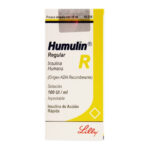
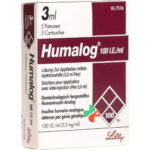
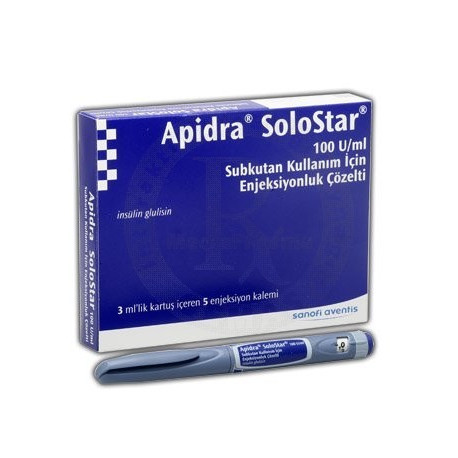


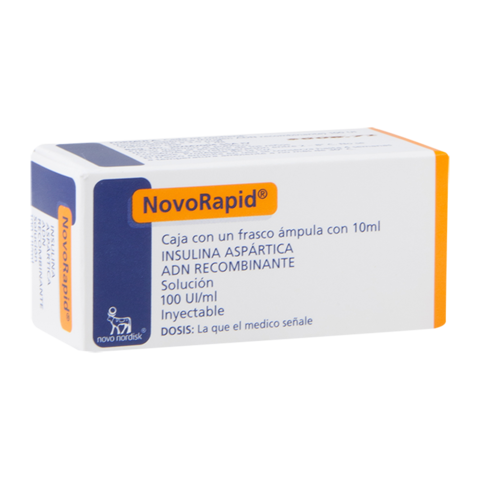

Reviews
There are no reviews yet.